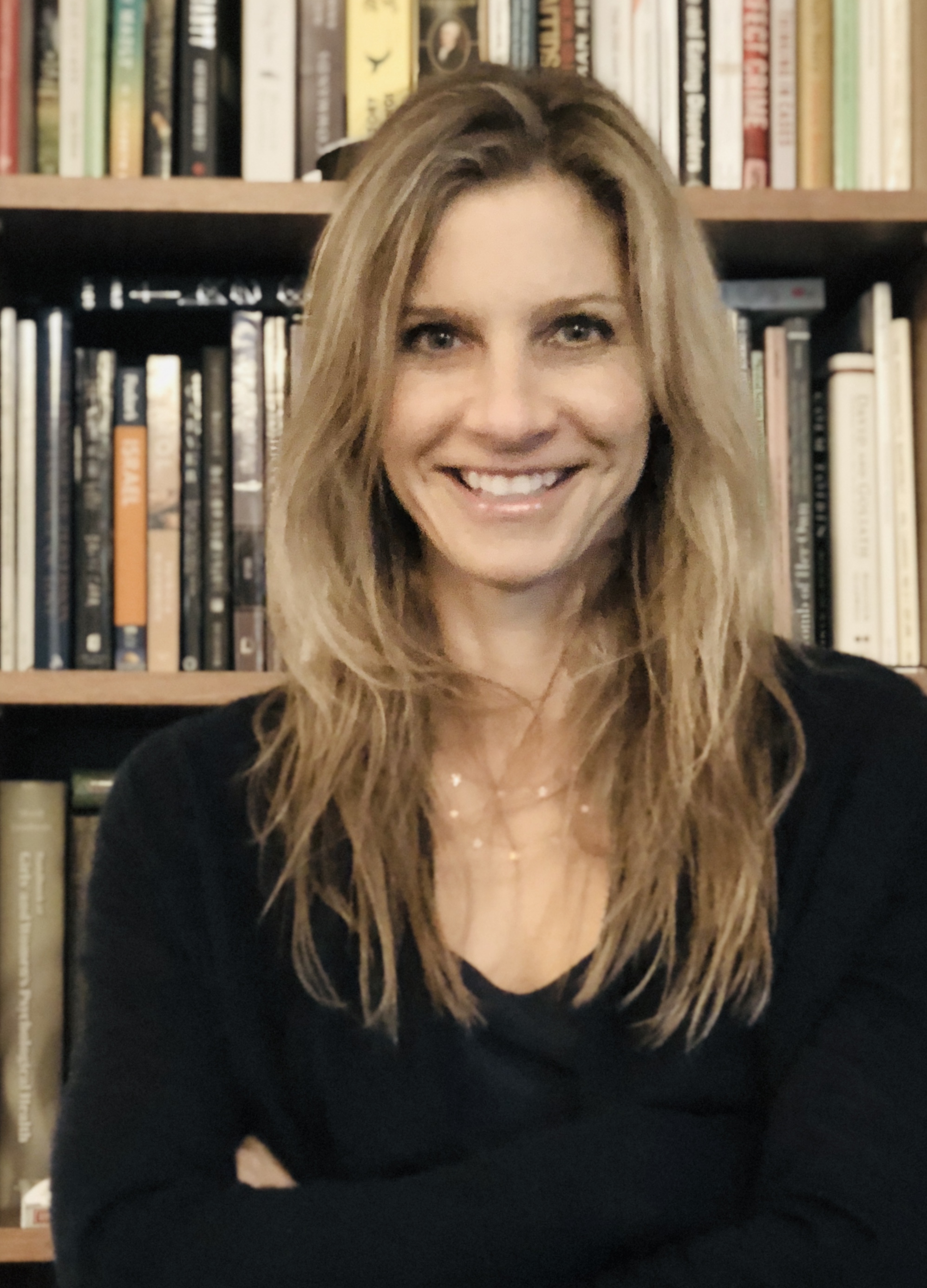Curriculum
 The curriculum of both psychoanalytic training programs (the Certificate Program in Psychoanalysis and the Licensure-Qualifying Program in Psychoanalysis) provides candidates a survey of the principal issues that shape clinical and theoretical psychoanalysis. Candidates in both programs take most classes and seminars together, and each entering class moves largely as a group through 360 class sessions meeting over the span of four years. An overview of our current curriculum shows the progression of multiples psychoanalytic perspectives and topic areas covered in the four years of coursework.
The curriculum of both psychoanalytic training programs (the Certificate Program in Psychoanalysis and the Licensure-Qualifying Program in Psychoanalysis) provides candidates a survey of the principal issues that shape clinical and theoretical psychoanalysis. Candidates in both programs take most classes and seminars together, and each entering class moves largely as a group through 360 class sessions meeting over the span of four years. An overview of our current curriculum shows the progression of multiples psychoanalytic perspectives and topic areas covered in the four years of coursework.
Our Academic Calendar runs from September through May. Classes run consecutively on Tuesday evenings from 6pm to 10pm during three ten-week trimesters per academic year for the first two years of training. Course schedules are frequently updated throughout the academic year. In the 3rd and 4th years, candidates take two evening classes on Tuesdays and are required to take a total of 5 Elective Courses in any combination of 500 and 600 level classes. All coursework must be completed within six years unless an extension is granted by the Director of Training.
Year 1 Course Schedule
Year 2 Course Schedule
Year 3 Course Schedule
Year 4 Course Schedule
In keeping with New York State Education Department regulatory requirements, candidates in the Licensure-Qualifying Program in Psychoanalysis are also required to take additional course work in the areas of psychoanalytic research, child abuse identification and reporting, and professional issues, including "scope of practice."
Candidates are permitted to change the sequence of certain courses and to make certain substitutions or time rearrangements if they feel it is helpful in their training. Candidates can create an Independent Study if they have a special area of interest or a conflict with a course in the core curriculum. To do so, candidates should contact the Director of Curriculum.
Course Descriptions
Listed below are descriptions of the required courses during each of the four years and the current offerings of electives.
First Year Required Courses
110: David Thurn, LCSW, Ph.D.
 15 sessions
15 sessions
Evolution of Psychoanalytic Concepts I: The Development of Freud's Theory
This course will trace the development of Freud's thinking as he struggled to create a distinctively psychoanalytic vision of human experience. Beginning with the earliest works, we will explore his efforts to grapple with the clinical and conceptual problems that confronted a new and evolving discipline. Studying the history of Freud's struggles and his solutions should illuminate the difficulties and the possibilities that confront psychoanalytic theory and practice to this day.
111: Lori Bohm, Ph.D. & Robert Langan, Ph.D.
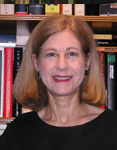
 10 sessions
10 sessions
Landmarks in Interpersonal Psychoanalysis
This course will provide an overview of the curriculum and training process with regard to key perspectives and paradigm shifts influencing interpersonal psychoanalysis. Candidates should begin to realize personally how a developing comprehension of psychoanalytic change entails reorientation in theory, clinical praxis, and experience of oneself, alone and with others.
112: Gary Schlesinger, Ph.D.
 10 sessions
10 sessions
Beginning the Treatment - Conceptual and Clinical Approaches
This course will attempt to familiarize candidates with the complex issues involved in beginning a psychoanalytic treatment. I will try to provide a comparative, contextual approach to the clinical issues involved as one's beliefs about what facilitates mutative experience may determine how one seeks to begin a treatment. I will use a combination of readings discussing conceptual and practical matters and clinical material from both my practice and cases presented by candidates.
113: Miri Abramis, Ph.D.
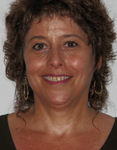 10 sessions
10 sessions
Clinical Implications of Developmental Theory and Research
This course is on the application of child development theory and research on contemporary interpersonal psychoanalysis. The first half of the course surveys earlier psychoanalytic theories of development, i.e: Klein, Winnicott, Bowlby, Mahler, Stern. The second half focuses on current research in mother-infant interaction and attachment. We will explore this research in light of the earlier theories of development. We will examine the impact of early interaction on the development of the self and other, on affect regulation and cognition. We will also look directly to contemporary research and how it can enhance our understanding and thinking about clinical work.
114: Philip Blumberg, Ph.D.
10 sessions
Developing Interpersonalism in Historical Context: Sullivan, Thompson, Fromm and the Pioneers
The goals of this course are essentially two-fold: an historical accounting of the "life and times" of the founders of Interpersonal psychoanalysis with a view towards contextualizing their notions of theory and praxis in their lived lives; while at the same time, implicitly and explicitly orienting students to think more deeply about their own "lives and times" and how those factors come to bear on their own developing personal metapsychologies.
115: Ira Moses, Ph.D.
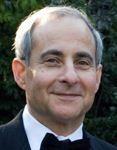 10 sessions
10 sessions
Inquiry and Free Association
We will review ways to integrate inquiry and modified free association with a variety of patients including those who tend to externalize, avoid introspection, act out, self-medicate, etc. We will also consider the 1) transference and countertransference dynamics of inquiry 2) the therapeutic action of inquiry to further the patient's articulation of inner experience and 3) inquiry as a counterpoint to the therapist's intuitive assumptions.
116: Irwin Hirsch, Ph.D.
5 sessions
Clinical Case Seminar
This five week clinical seminar is devoted to a focus on examining the interaction between patient and analyst. Equal attention is paid to transference and countertransference (the transference-countertransference matrix), highlighting the degree to which this emphasis reflects the heart of therapeutic action. Clinical illustration will liberally accompany presentation and discussion of theoretical concepts.
117: David Rappaport, L.C.S.W.
15 sessions
Evolution of Psychoanalytic Concepts II: Freud and The Evolution of Psychoanalytic Technique
This course will study the historical evolution of the theory of psychoanalytic technique. Beginning with Freud's technical papers, evolving ideas about classical psychoanalysis as a treatment method will be studied, highlighting the history of psychoanalysis and developing and ongoing controversies about psychoanalytic practice. Among the concepts explored are: technical considerations; the analytic attitude; transference and resistance; abstinence and neutrality; the role of interpretation; mutative factors in treatment; self-disclosure and countertransference; the clinical situation and personal interaction.
118: David Appelbaum, Psy.D.
5 sessions
Analytic Listening and Intervention
This five sessions course focuses on analytic listening, guided by idea that a core feature of the psychoanalytic approach entails working closely with the patient’s own process. During our meetings we will study the concept of analytic listening from different historical and theoretical vantage points including: the therapeutic impact of listening, listening with the third ear, neutrality, empathic immersion, meditative techniques, inquiry and barriers to listening. Clinical material will be shared by candidates in order to examine how we listen to our patients.
Second Year Required Courses
210: Robert B. Shapiro, Ph.D.
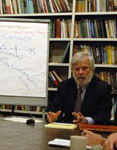 10 sessions
10 sessions
Evolution of the Person in Childhood and Adolescence - Clinical Theories - Their Sources and Context
A study of personality development from the points of view of intra- and interpersonal factors in the individual, the family, the society and the culture. This course will highlight the clinical implications of early life experiences.
211: Marcelo Rubin, Ph.D.
10 sessions
Sullivan and the Beginnings of Interpersonal Psychoanalysis
This class will provide an in-depth focus on Harry Stack Sullivan's work. The historical context of his ideas and work, his developmental schema, the centrality of anxiety, and key concepts (i.e. security operations, detailed inquiry, parataxis, dissociation) are elaborated in a theoretical and a clinical framework. Students and instructors present clinical vignettes for clarification of the basic principles of treatment. Differences between the interpersonal orientation and approaches of other schools will be clarified.
212: Donnel Stern, Ph.D.
10 sessions
Emergent Properties of the Interpersonal Field
All clinical events are emergent, and involve both patient and analyst. The unpredictable and changing nature of the interpersonal field, especially its unconsciously mediated aspects, determines the experience that patient and analyst can have in one another's presence; but we can just as well say that patient and analyst, simply by doing their work together, ceaseless configure and reconfigure the field. These principles will be studied in clinical material supplied by seminar members, each of whom will have an opportunity to present their work.
213: Pascal Sauvayre, Ph.D. & Orsi Hunyady, Ph.D.
 10 sessions
10 sessions
Psychoanalysis in Context: A History of Ideas
This course provides a historical and theoretical overview of psychoanalysis, from Descartes, Freud and the birth of modernism through Lacan, intersubjectivity, and postmodernism. Its aim is to try to contextualize key concepts and ideas for psychoanalysis and to clarify their relevance to our clinical experience.
214: Warren Wilner, Ph.D. & Darlene B. Ehrenberg, Ph.D.
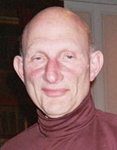
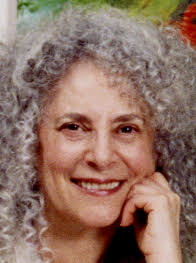 10 sessions
10 sessions
The Analytic Interaction: Transference - Countertransference
Transference and Countertransference issues as both an aid and hindrance will be discussed through student presentations and the literature..
215: Evelyn Hartman, Ph.D. & Melanie Israelovitch, M.D.
10 sessions
Character and Psychopathology
In this course we will examine the complexity of character and the ways that characterological styles help to foster and impede the ability of our patients to live their lives in the face of struggles, big and small, through daily living and during major life events. We will consider how we, as interpersonal analysts living within our own characterological styles, use ourselves and the intense reactions that may arise, as we confront the challenge of helping our patients live more fully within their character and in their world. We will also consider the interplay of psychopharmacology with character style and treatment.
216: Emily Kuriloff, Psy.D.
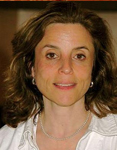 10 sessions
10 sessions
Modern Interpersonal and Relational Perspectives
This course will be the third course in a second year survey of Interpersonal Psychoanalysis beginning with Sullivan's work and taking the student into the present. Both linkages to the past and the uniqueness of current positions are to be defined and compared. This course will build on the two previous courses in presenting contemporary interpersonal and relational views.
217: Anton Hart, Ph.D. & Melissa Ritter, Ph.D.

 5 sessions
5 sessions
Ethics in Psychoanalytic Practice
This course addresses ethical issues in contemporary psychoanalysis with an emphasis on matters clinical. Utilizing readings and case examples brought in by the instructor and the participants, the class aspires to serve as a forum for ethical group supervision. Particular attention will be paid to boundary conditions and to potential conflicts between the psychoanalytic endeavor and the contexts within which it is undertaken. Also addressed will be the unique contribution of a psychoanalytic sensibility to the formulation of an ethical stance.
218: Ruth Livingston, Ph.D.
Co-Editor-in-Chief, Contemporary Psychoanalysis
5 Sessions: Feb 25, March 3, 10, 17, 24, 2020
Time: 6:00 p.m. - ???
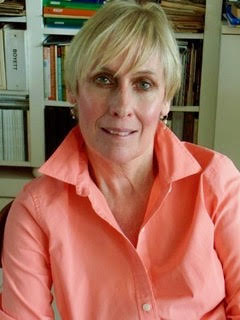
Psychoanalytic Writing
This five-session seminar/workshop for 2nd Year Candidates will focus on psychoanalytic writing: case presentations/conference presentations/journal writing/and writing with a psychoanalytic lens for blogs and other social media. We will consider the pros and cons of writing as psychoanalysts – including the ethical issues, such as patient confidentiality. What writing factors contribute to strong oral presentations, such as a case or a conference paper? How are psychoanalytic ideas and case material transformed into articles for professional journals? What about using our professional knowledge to write for the lay public? What are the differences and similarities among these psychoanalytic writing opportunities? In addition to readings, this seminar/workshop will include some in-class writing exercises as well as between-class short writing assignments.
230: Cleonie White, Ph.D.
10 sessions
Psychoanalysis: Race, Class, Culture, Difference
This course addresses various ways issues of race, ethnicity, social class, and difference influence the treatment process. The first section of the course provides a broad conceptual framework; the second section focuses on the Hispanic population of the United States as a case in point.
Third Year Required Courses
310: Seth Aronson, Psy.D. & Deborah Fraser, Ph.D.

 15 sessions
15 sessions
Object Relations Theory
This course provides an overview of object relations theory through a consecutive focus on three major contributors: Klein, The British Middle School and Fairbairn.
312: Gilead Nachmani, Ph.D. & Alice Sohn, Ph.D.
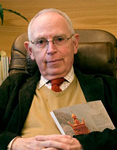
10 sessions
Working Psychoanalytically
The purpose of this course is to examine and consolidate psychoanalytic thinking in its application both to short- and long-term clinical work, and in particular to work with "difficult" patients posing difficult treatment predicaments. Working psychoanalytically entails an awareness of transference, insight and working through, as well as an interpersonal engagement with patients in whatever ways they choose to present themselves. This way of working effectively integrates psychoanalysis and psychotherapy in a common interpersonal approach. Readings will frame problematic situations for class discussion; presentations of clinical examples by instructors and candidates will provide in vivo application.
318: Richard Loewus, Ph.D.
10 sessions
The Problem of Technique
Psychoanalytic technique has fallen on hard times. It is generally accepted that there is no received technique, no one right way to handle any given clinical interaction. At the same time candidates come to training to learn general principles, perhaps even specific skills, necessary to conduct a successful analytic treatment. We will explore this tension through readings drawn from conflicting visions of analytic technique – received, improvised, spontaneous. The readings raise questions regarding the definition of fundamental tenets of clinical theory, the technical hypotheses they generate, and the problems they raise. During classes we will analyze transcripts of clinical process in order to explore the controversies raised by each week's readings and to gain our own perspective into the fundamental problem of learning to conduct a psychoanalytic treatment.
331: Christopher Bonovitz, Ph.D.
 10 sessions
10 sessions
Comparative Theories of Therapeutic Action
This course will compare and contrast theories of therapeutic action across different psychoanalytic schools of thought. Using the candidates' knowledge of interpersonal psychoanalysis as a point of reference, forays into some of the other major psychoanalytic theories will involve reading early and contemporary theorists in developing a framework for how theoretical ideas translate into conceptions of mutative action and the presumed processes involved with bringing about change.
332: Joerg Bose, M.D.
 10 sessions
10 sessions
Kohut, Self Psychology and Current Derivatives
This course reviews basic concepts of Kohut's self psychology and their evolution in current self psychological thinking. The clinical usefulness of a concept of self and the postmodern challenge thereof will be discussed and studied in pertinent case vignettes.
Fourth Year Required Courses
410: Anton Hart, Ph.D., Evelyn Hartman, Ph.D. & Sue Kolod, Ph.D.
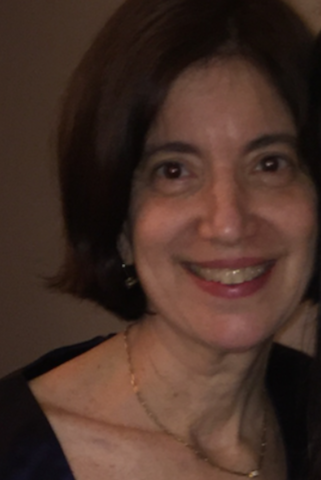
 10 sessions
10 sessions
Seminar - Faculty and Candidate Presentations of Psychoanalytic Clinical Process
In this seminar senior psychoanalysts will present detailed clinical process material to demonstrate both how they work as well as to conceptualize what is transpiring. Candidates will be encouraged to question, explore and critique the material. Candidates will also have the opportunity to present clinical material. There is no formal reading syllabus for this class, though readings may be assigned as the need arises.
411: Josh Bazell, MD & Andrew Gerber, Ph.D.
10 sessions
Neuroscience and Psychoanalysis
Neuroscience and psychoanalysis in theory and practice. What scientific evidence exists to support the techniques and assumptions of psychoanalysis? How has psychoanalysis affected neuroscience? How does the brain host the mind? This 10 week course will ask these and other questions through a study of both classic and contemporary research.
412: Jay Greenberg, Ph.D. & Seth Aronson, Psy.D.
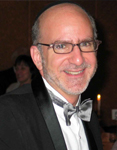 10 sessions
10 sessions
Contemporary Kleinian Viewpoints
This course covers the major contributions of important neo-Kleinians such as Wilfred Bion, Hanna Segal, Betty Joseph, Ronald Britton and John Steiner, and explores post-Kleinian developments and issues such as contemporary understandings of the Paranoid-Schizoid, Depressive and Oedipal positions, therapeutic action and interaction, and the clinical use of projective identification. These contemporary Kleinian views will be compared and contrasted with interpersonal perspectives.
413: Elizabeth Hegeman, Ph.D. & Sharon Kofman, Ph.D.

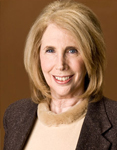 10 sessions
10 sessions
Trauma and Dissociation
The focus of this seminar will be to read contemporary essays on trauma, dissociation, and treatment. All participants will be encouraged to reflect on the readings through the lens of their own work with traumatized patients.
414: Todd Essig, Ph.D.
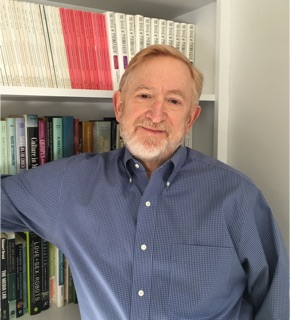
The Gains and Losses of Screen Relations: Clinical Consideration
This seminar will take a psychoanalytic look at the history, current status and future possibilities for screen relations. This will include understanding how telepresence works; exploring how to help patients who struggle with screen relations run amok; and when and how to use screen relations to mediate a psychoanalytic treatment, as well as when not to.
416: Katharina Rothe, Ph.D.
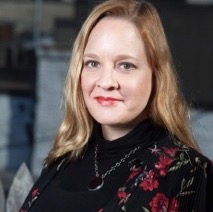 10 sessions
10 sessions
Gender, Sex & Sexuality: Freud and beyond
This course will introduce the candidates to non-biologistic, non-heteronormative ways of thinking about gender, sex, drives, desire, and sexualities. Starting with Freud and then moving beyond Freud, we will study conceptualizations that neither reduce the human being to biology nor to sociology or culture.
417: Sarah Stemp, Ph.D.
Day/Time to be determined
Aspects of Termination
This course will focus upon the co-construction and experience of the termination phase of psychoanalysis and psychoanalytic psychotherapy. We will consider issues involved in other kinds of endings as well, such as terminations due to a variety of external factors, or prolonged impasse. The course will address assessment of readiness (timing), characteristic issues which typically emerge for patient and analyst during the termination phase (e.g., mourning, regression, pride in and envy of growth and achievement, acceptance of limitation and imperfection, etc.), and questions around post-termination contact. Throughout, using clinical material, particular attention will be given to transference-countertransference dimensions of the termination process.
418: Roger Frie, Ph.D., Psy.D., R.Psych
 10 sessions
10 sessions
Legacies of Perpetration: Memory, Dissociation and Collective Responsibility
This course explores how we remember and respond to legacies of perpetration and their effects on our lives. How are we implicated in historical events for which we may have no direct responsibility? Why do we shirk from our obligations to listen and act even when confronted with the reality of historical or contemporary injustices? We will examine the role of silence, avoidance, dissociation and denial when confronting histories of perpetration and examine the challenges involved in achieving a position of active witnessing that might address the suffering of others. Emphasis will be placed on the collective nature of memory and how individual responses are consciously and unconsciously shaped in relation to our social contexts. Readings are drawn from psychosocial studies, history and psychoanalysis.
500 Level Courses: Electives
510: Ira Moses, M.D.
 10 sessions, winter
10 sessions, winter
Tuesdays, 11:45 AM - 12:45 PM
Interpersonal and Relational Psychoanalysis: viva la difference
Traditional interpersonal and modern relational therapy, though often viewed interchangeably, differ from each other substantively. This seminar will use clinical material from readings and current clinical work to explore the implications of each approach. Some of the topics we will explore will be:
-
The problem of inference with intersubjectivity
-
How the participant-observer model differs from co-participation
-
How the analyst's reverie is always / sometimes / never relevant
-
How Sullivan’s concept of “dissociation” has drifted in contemporary use
-
When the presumption of mutuality masks pseudo-mutuality
-
The putative chain of causation from childhood experiences to adult symptoms
-
When “holding” becomes countertransference avoidance
-
How detailed listening and words matter
-
How Inquiry may be misapplied and misunderstood
-
How to consider the unique individuality of our patients in the current atmosphere of reductionism and tribalism
511: Darlene B. Ehrenberg, Ph.D.
 10 sessions
10 sessions
Tuesdays, 11:45 a.m. - 1:15 p.m.
Clinical Case Seminar - Working at the Intimate Edge
The focus of this seminar will be on how, when appropriate, the exquisite tracking of moment- to-moment shifts in the affective experience of both patient and analyst, as they engage with each other, can allow for opening immediate experience in ways that can become transforming. Theoretical issues relating to how we use ourselves as analytic instrument, given our unconscious vulnerabilities, will also be explored, with special consideration of conceptions of the nature of therapeutic action, and how the choices we make in terms of how we respond (or not) at any given moment may open and close different analytic possibilities. Attention will also be paid to issues of "being" vs. "knowing" in the analytic encounter. Participants are encouraged to bring in clinical process if they would like to.
512: Richard H. Loewus, Ph.D.
10 sessions
Day/Time to be determined
Developing and Formulating One's Clinical Voice Day and Time to be determined.
Will be held in instructor's office.
Each of us develops an individual clinical voice and style based on the clinical theory we choose and the understanding of it we create. Yet often why we do what we do clinically is less formulated than we believe. Through the seminar participants' collective examination of their presented clinical process, each will have the opportunity to explore the conscious clinical principles as well as the less formulated variables that inform work with patients. The object will be to foster the articulation of each participant's developing clinical voice at this stage in training.
520: Eric Singer, Ph.D.
10 sessions
Tuesdays, 1:45 - 3:15 p.m.
Clinical Case Seminar
The focal point of this seminar will be the role of the analysts personality as it affects the course of the analysis. Candidates will present vignettes from their work for discussion
522: Nicholas Samstag, Ph.D.
 10 sessions
10 sessions
Wednesdays, 11:00 - 1:30 pm
Getting Real with Psychoanalytic Readings
Time and dates are negotiable
The purpose of this course is to give the analytic candidate a forum within which to consider what his or her favored concepts are, and how these preferences relate to their personal history. The course will also encourage open and frank discussions concerning how personal development necessarily shifts analytic preferences. The net goal of all this is to de-mystify and de-politicize theoretical allegiances for the clarity of the analyst and the ultimate benefit of the patient. A net gain of the course will be to highlight the analyst's transference/countertransference relationship(s) to analytic theory, and how these relationships are witnessed in therapeutic action. To that end, clinical material will be presented to illuminate specific interactions among analyst, theory, and praxis.
530: Janet Tintner, Psy.D.
10 sessions
Thursdays, 1:00 - 3:00 pm
Talking Taboo, Writing Taboo: Opening up feelings – Inviting discussion of the Analyst's Physical Self
This clinical seminar will identify and invite articulation of complex, "taboo" feelings about the analyst's physical self – including visible and invisible physical factors -- that patients may resist, dissociate, or deny. It is hoped that expressing such feelings in the context of the analytic relationship will galvanize unspoken and forbidden aspects of the negative transference/countertransference, and thus enliven and enrich the treatment. Technical problems will be addressed, and clinical discussion will pinpoint facets of individual analysts' physicality that may be difficult to hear and discuss. Both instructors will use their ongoing written work in this arena, and candidates will also use clinical discussions to develop a written project of some sort; i.e., a blog, a paper, or an oral presentation.
532: Richard Gartner, Ph.D.
10 sessions
Thursdays, 1:30 - 3:00 pm
 Advanced Clinical Seminar in Working with Sexually Abused and/or Dissociated Patients
Advanced Clinical Seminar in Working with Sexually Abused and/or Dissociated Patients
This seminar includes intensive ongoing discussion of students' cases that have issues involving sexual abuse and/or dissociation due to trauma. Students should have some familiarity with the work of Bromberg, Davies and Frawley, and Gartner, or expect to read from their work during the course.
533: Philip Bromberg and Lawrence Brown
10 sessions
Thursdays, 3:45 - 5:45 pm
Will be held in Dr. Bromberg's Office - 58 East 79th St., #4F
Space limited to maximum of five members
Advanced Seminar in Clinical Process, Attachment, Healing & Growth
Emphasis will be on listening to clinical process in a manner that reveals how patient and analyst, through their multi-layered relationship, are dissociatively communicating some aspects of their immediate experience of being together that are excluded from cognitive representation and therefore cannot be explicitly addressed. Each member of the seminar will present process material using audiotape recordings of their ongoing work with a patient in psychoanalytic therapy or psychoanalysis. What we experience affectively as we listen as a group will be the opening context of discussion, and we hope will expand conceptually and clinically in ways that broaden in scope as we progress. The goal is to facilitate a group process that increases access and sensitivity to the interface between what is affectively enacted as dissociated communication and what is simultaneously taking place between patient and therapist consciously. It is also hoped that we will thereby help increase sensitivity to "healing and growth" as an intrinsic and unitary psychoanalytic process that is most shaped by the shared humanity we bring to what we call "the analytic relationship."
600 Level Courses: Electives
601: Claire Basescu, Ph.D.
10 sessions
Fall Trimester, Tuesday 4-5:30 PM
Credo: My Psychoanalysis
This class invites students to articulate their own developing views of therapy and therapeutic action. It is a writing class, focused on short, informal pieces of writing. Students will be asked to identify quotations from their readings or clinical anecdotes from their practices and to write about them. The goal is to encourage exploration, self-awareness and self-definition. The class atmosphere will be one of creativity and playfulness. Each participant (including the instructor) will contribute about a page a week to the rotating class discussion. There may be some writing prompts or small assignments from the instructor. (For a longer course description, you may contact: clairebasescu@gmail.com.)
602: Robert Langan, Ph.D.
10 sessions
 Day/Time to be determined
Day/Time to be determined
Reading as Stance
This seminar proposes collaboratively to construct a notion of psychological stance as a kind of reading, an active and automatic construction of experience into self-in-the-world. Commonalities in the reading of literature, self, and another person will be considered. Literary readings might include Nabokov, Bakhtin, Bromberg, and Winnicott, depending on the interests of the class.
603: Evelyn Hartman, Ph.D.
10 sessions
 Mondays, 1:00 - 2:30 PM
Mondays, 1:00 - 2:30 PM
Time and dates are negotiable.
Psychodynamics of Love
This course will examine the psychoanalytic literature on the dynamics of romantic love. We will consider definitions of and developmental precursors to romantic love as well as developmental trajectories that lead to difficulties in love relationships. We will examine the development of sexuality and attachment and its relationship to the development of a romantic object. Subjective dimensions of romantic love such as passion, desire and erotic experience as well as the role of fantasy within these will be examined. Finally, changes over time in long lasting love relationships will be addressed. Clinical examples will be presented.
604: Shelly Goldklank, Ph.D.
10 sessions
Tuesdays, 12:15 – 1:45 p.m. (Flexible)
Will be held at instructor's office.
Integrating Interpersonal Psychoanalysis and Couples Therapy
We will discuss an integrative psychoanalytic-systemic approach to treating couples in psychotherapy.
605: Joseph Schachter, M.D., Ph.D.
10 sessions
Wednesdays, 12:00 - 1:30 p.m.
Clinical/Analytic Research Course for Candidates and Faculty
The purpose of this course is to assess whether developing a research orientation towards clinical material will increase the range and scope of psychodynamic hypotheses about that material. The development of a research orientation involves enhancing awareness of the limitation of our knowledge and understanding of these clinical materials. Emphasis will be placed upon the tentativeness with which interventions should be made and the capacity to develop tolerance for uncertainty. Sessions for each patient discussed will be presented seriatim for four weeks each.
606: Robert Gaines, Ph.D.
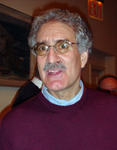 10 sessions
10 sessions
Tuesdays, 1:30 - 3:00 p.m.
Will be held at instructor's office.
Psychoanalytic Approaches to Supervision
This course will be aimed at students who have had no formal training in supervision or have begun doing some supervision.
While there is no cohesive model of the supervisory process, it has been more thoroughly studied and conceptualized then many clinicians realize. This course will attempt to acquaint students with that work. This course will attempt to articulate an interpersonal/relational point of view. The main features of that point of view are an emphasis on the supervisory relationship as a collaborative endeavor, and an alertness to the ongoing experiences of both participants in the relationship and the way those experiences can facilitate or hinder learning.
This course will aim to acquaint students with the basic tools of the supervisor and to give them some experiential exposure to their own personally based biases, blind spots, strengths, and weaknesses as supervisors.
607: Mark Goldenthal, Ph.D.
10 sessions
Tuesdays, 3:00 - 4:30 p.m.
Current Research in Complex Psychopathology
When failure in the facilitating environment seems an inadequate explanation for the complexity and severity of a person=s psychopathology, having access to research may enhance the quest for meaning and understanding. This course will review current research about psychopathology including depressive disorders, bipolar disorders, and various combinations of affective disorders with anxiety, attention deficits, and personality disorders. Studies in biological psychiatry, clinical and neuropsychology research will be discussed. The focus will be on the reciprocal interaction of biological and psychological processes especially as it impacts psychoanalytic work (e.g. affect regulation, primitive defenses, object representations, counter-transference, etc.) with people who have severe and complex psychopathology.
608: Emily Kuriloff, Psy.D.
 10 sessions
10 sessions
Day/Time to be determined
Between Psychoanalysis and Society
This elective will explore the ways in which psychoanalysis has been profoundly influenced by, and in turn has shaped public and private "culture", both yesterday and today. This relationship will be explored critically, but also as a powerful potential.
610: Evelyn Hartman, Ph.D.
 Mondays, 1:00 - 2:30 PM
Mondays, 1:00 - 2:30 PM
Day/Time to be determined
Dream Group
As we listen to our patients' dreams, we will consider their associations and our associations, with an ear to group process , as we understand the unique contribution offered by a dream along the royal road of analytic work .
611: Ronald N. Puddu, LCSW
10 sessions
Tuesdays, 11:45 - 1:15 p.m.
The Relationality of Harold Searles
Familiarity with Harold Searles' therapeutic sensibility has the effect of enhancing one's ability to use subjective affective experience in understanding treatment difficulties. This may, in turn, engender a growing feeling of confident functioning so important to the process of consolidating a therapeutic identity and personal therapeutic style. We will be exposed to Searles' creative mind where developmental thinking is closely tied to clinical understandings and interventions that are unique in the analytic literature. Anticipating multiple self-state theory is Searles' interest in bi-lateral dissociative experience and the inevitable enactments that lead to their explication. He contends that patient's impressions of the analyst are rooted in some dissociated "not me" reality concerning the analyst's personality or self-state and that waking the analyst from this dissociated slumber is pre-requisite to growth on the part of both participants. Within his non-dogmatic integration of internal object-relations theory with inter-personal theory as but two sides of one coin, familiarity with his work contributes to candidate's self-consolidating access to inner process in the face of the inevitable vicissitudes of the treatment situation.
612: Melissa Ritter, Ph.D.
10 sessions
Fridays, 11:30 - 1:00 p.m.
Erotic Transference/Countertransference
This will be a small group (limited to 6 advanced candidates) clinical case/process seminar with supplemental readings. The open discussion of what is a particularly challenging, often tangled, sometimes aversive, occasionally enthralling, aspect of clinical work will be central to this training experience. Participants will be encouraged to share questions, concerns, confusions, theories and the random certainty. We will focus on the clinical work of both candidates and instructor.
613: Jenny Kaufmann, Ph.D.
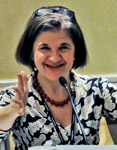
Wednesdays, 7:30 to 8:45 PM
Starting February 28th, 2018
Comparative Conceptualizations and Treatment Approaches to the Grandiose Patient
How do you understand and work with patients who present with what different clinician writers have conceptualized as defensive grandiosity, defensive omnipotence, false self disorders, manic defenses, and the grandiose pathological self? These patients can present as overtly arrogant, entitled and in control or on top of everything or they can be deflated, and self deprecating while maintaining secret fantasies of perfectionistic grandeur. We will consider and compare Kohut, Stolorow, Winnicott, Bach, Bromberg, Fiscalini, Mitchell, Klein and Kernberg's perspectives about such patients. In the process we will not only think about how these writers conceptualize such patients but also consider how they vary in terms of how to approach these patients clinically. Candidates will be encouraged to evolve their own more integrated and inclusive approach and apply their ideas to clinical cases throughout.
615: Robert Langan, Ph.D.
 10 sessions
10 sessions
Tuesdays, 11:30 - 12:45 p.m.
Attending Within: Strategies of Buddhism and Psychoanalysis
Dates and Time by Arrangement.
Will be held at instructor's office.
How do you decide, when sitting with a patient, or for that matter, when sitting with yourself, what to pay attention to? A foundational assumption of psychoanalysis is that one has more leeway in choosing than at first it appears, and that by choosing differently comes the possibility of living differently. One can alter the nature of self experience. Similarly, a foundational assumption of Buddhism is that the givens of reality are in a profound way illusory, and that realization of how this is so leads to a profound alteration in the nature of self experience. The strategies of Buddhism and psychoanalysis that lead toward such alteration bear comparison. The goal of the course is to highlight attention to attention as an introspective wild card in personality change. Its relevance is both clinical and personal.
618: Pascal Sauvayre, Ph.D.
 10 sessions
10 sessions
Day/Time to be determined
To be held in instructors office.
Lacanversation
The goal of this course is to establish a rudimentary knowledge of Lacan's theory and clinical approach (Lacanian 101) in order to provide a point of difference (for us) from which to view Freud and psychoanalysis in America, and thereby to bring into focus assumptions that would otherwise remain unquestioned (at least in these unique ways). Some of Lacan's seminal texts from Ecrits and The Four Fundamental Concepts of Psychoanalysis are studied in detail, with the help of accompanying explanations and commentaries by Fink, Zizek, and Winnicott. The expectation is to familiarize ourselves with the language and way of thinking, enough to seem conversant only for the uninitiated, but acknowledging that we could converse haltingly in broken Lacanian to those educated in this mindset. It is hoped, however, that this Lacanian primer will help us expand our psychoanalytic horizons, not just as American psychoanalysts but also as interpersonalists in particular.
619: Dodi Goldman
10 sessions
Day/Time to be determined
Winnicott's Search for Himself as Clinician
Psychoanalytic ideas flourish in a variety of ways: through careful attention to accumulated clinical data over time, observations of child development, open discourse with extra-analytic disciplines, accommodation to shifting cultural trends. But innovative theories also form externalized symbolic structures reflecting the theorist's own self. They can be efforts at self cure. Using Winnicott as illustration, the elective explores how Winnicott's theory mirrors his own subjectivity. Participants will read together passages from Winnicott's private correspondences, autobiographical notebook, and public talks to consider the link between his life and theory.
620: F. Marrocco; D. Glazer
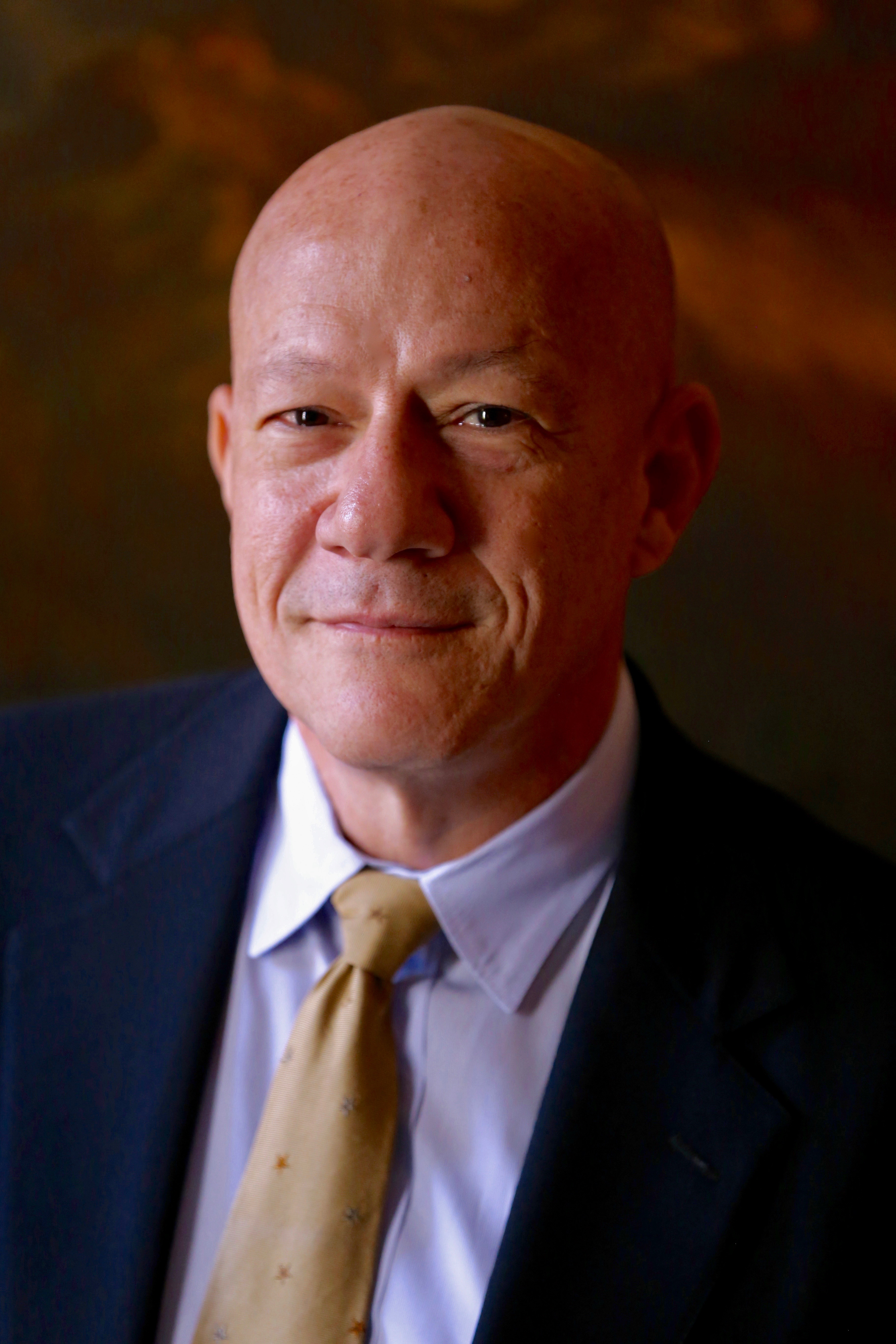 10 sessions
10 sessions
Fridays 10:30 AM - 11:45 AM
Psychotherapy with LGBTQ People
This course is designed to enhance participants' knowledge of the range of issues commonly faced by LGBTQ people throughout the lifespan. The course integrates a developmental/theoretical perspective with an in-depth clinical exploration of the treatment issues specific to LGBTQ individuals. Students will develop an understanding of the intrapsychic and interpersonal issues that arise when working with patients with non-normative gender identification and sexuality. Special topics include: exploration of alternative developmental theories for LGBTQ individuals; understanding the relationship (or lack thereof) between gender experience and sexual desire; transphenomena; the effects of the closet; regulatory anxiety; special topics in transference/countertransference; therapists' self-disclosure; etc.
631: Robert Langan, Ph.D.
 10 sessions
10 sessions
Tuesdays 11:45 - 1:00 p.m., Room 1B
Clinical Listening: Holding onto Letting Go
When sitting with a patient (or when sitting with yourself) how is it your attention tightly focuses, or loosely wanders away? This course explores this question both theoretically and experientially. Readings will draw on Freud, Farber, Ghent, Stern et al., as well as Buddhist writers. Class exercises will tap clinical process, dreams, meditation, visualization, association, and thought/feeling linkages. The goal of the course is to posit attention to attention as an introspective wild card fostering personality change.
641: Jeffrey Sacks, D.O.
Day/Time to be determined
This course schedule is flexible within the first or second trimester
After the intersubjectivists, Paul Ricoeur's Therapeutic Mutual Recognition
Paul Ricoeur, a philosophical anthropologist, formulated and utilized an interdisciplinary language to understand and examine the clinical psychoanalytic process. In this course we will examine his ideas to explore how creativity affects therapeutic action from interpretation to mutual recognition. Vulnerability and gratitude are among the many complex human experiences we will examine within Psychoanalytic work.
642: Avgi Saketopoulou, Psy.D.
2018-2019
Office in Soho, TBD
The Infantile Sexual: Enigma and Transgression
This course surveys a body of psychoanalytic thought on how normative as well as perverse and transgressive sexualities are all shot through the infantile sexual. We will engage questions of normality vs. pathology, trace a history of ideas as to infantile sexuality, as to what counts as the sexual body and will begin to track how these issues manifest in the consulting room. What you can most hope to gain is learning how to bear sitting with this kind of content in the presence of your patients.
643: Rande Brown
2019-2020
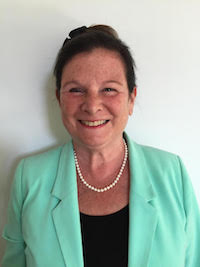 10 sessions
10 sessions
Place and Time TBD
Death for Clinicians: How to Treat a Patient who is Dying
This course will examine the psychoanalytic challenges of treating a patient who is dying.
Death is not a comfortable topic for most people to discuss and, in contemporary society, the process of dying has been sanitized to the point of dissociation. This course is intended to make the clinician more competent in dealing with the subject of death by explicitly and openly examining issues that may arise in the clinical encounter with a dying patient, including how to talk about death, how to practice active listening, and how to deal with issues that arise around acceptance, transference and countertransference, anticipatory mourning, the notion of spirituality, and opportunities for growth and transformation at the end of life. Participants will be encouraged to present clinical material throughout the course and will be asked to write a brief journal entry each week to reflect on the experience of reading that week’s papers.
644: Eyal Rozmarin Ph.D.
2019-2020
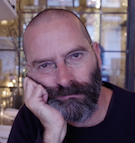
Love and power, subjectivity and the collective, introducing social theory into psychoanalysis.
Course Description:
This course offers a preliminary exploration of the social-collective aspects of subjective life and experience. We will read and think together about the many ways in which subjectivity is structured and regulated by socio-political and historical forces, forces that operate on the level of the collective but impact each of us directly and intimately. Often through the mediation of the nuclear family. We will consider how this always changing reality animates our lives and our experience, and how, therefore, it requires that we keep adjusting our psychoanalytic lenses, both in theory and in our clinical practice.
Our emphasis will be on reading primary sources in social theory, and looking at how they might be engaged by the capacities and needs of psychoanalysis. We will venture into 2nd wave feminist critique (Firestone, wittig), insurgent psychiatry (Laing, Fanon), French post-structural thinking (Foucault, Deleuze & Guattari, Althusser) and the Frankfurt School (Fromm, Adorno, Horkheimer). We will consider some contemporary exploration of subjectivity (Butler, Bauman, Clough, Preciado). We might also read psychoanalysts who have already engaged social theory in their writing. All as time permits, with the understanding that the subject-matter and literature are demanding. (Most of the reading therefore suggested, not required.) We will explore social theory, but try to always remain close to the questions that concern us as clinicians. And so please expect to bring your/our clinical work into the room.
The course will be offered in the academic year 2019/20, 2nd trimester.
Wednesday, 8pm
Please contact Dr. Rozmarin at erozmarin@gmail.com to registrar for this class.
645: Deborah Fraser, Ph.D., Philip Rosenberg, Ph.D., Albert Banta, Ph.D.
2019-2020
Summer Case Conference
6-8 weeks
This is an experiential course for candidates to present their own clinical work. It is a creative, collaborative, and supportive environment intended to facilitate awareness of the unconscious processes underlying therapeutic relationships. Using recordings or written notes, the class explores the unconscious through moment-to-moment clinical interactions.
700 Level: Required Courses for License Qualifying Program
710: Mark Goldenthal, Ph.D.
10 sessions
Thursdays, 3:00 - 4:00 PM
Psychopathology for Psychoanalysts (LQP) (Offered in alternate years)
This introductory course in psychopathology and differential diagnosis (requiring multiple brief class presentations and write- ups) addresses the use of the American Psychiatric Association’s Diagnostic and Statistical Manual (“DSM”). Guided by DSM, schizophrenia and bipolar disorders are diagnosed with regard to symptom profiles and course of illness. The complexity of affective spectrum disorders (including bipolar II, bipolar depression, and mixed states) is approached from several orientations: biological psychiatry, epidemiology, and early psychoanalytic models. Various models of affective spectrum disorder in the psychoanalytic literature are discussed in understanding unipolar depression. Anxiety Disorders (including Obsessive Compulsive Disorders and Post Traumatic Stress Disorder) illustrate psychoanalytic theories of anxiety. The complex domain of Personality Disorders is approached from a descriptive and psychoanalytic perspective. The diagnosis and treatment of patients who are actively suicidal, self-mutilating or in other ways actively self-destructive is also addressed.
711: Cynthia Field, Ph.D. and Karen Marisak, Ph.D.
12 sessions
Tuesdays, 11:40 AM - 12:40 PM
Initial Consultation: Intake and Assessment Practicum (LQP) (Offered yearly)
This one-year practicum will involve each candidate doing a minimum of 3 two-session intake interviews in the Institute’s Clinical Services, with a supervisor present during these interviews, primarily as an observer. The candidate will write a report on each case and will also participate in a weekly group supervision with Karen Marisak, Ph.D. The supervisory group will meet weekly for the first trimester and second trimester until the holiday break in December. Candidates will also be assigned individual supervisors. This course is also a requirement for first year LMSW’s enrolled in Division One.
721: Deborah Fraser, Ph.D.
5 sessions
Thursdays, 3:00 - 4:00 PM
The Role of Developmental History in Interpersonal Psychoanalysis (LQP)
Introduces the nature and use of historical data in the interpersonal psychoanalytic approach. A review of basic developmental concepts will support candidates’ understanding of how to take a developmental history with adult patients in psychotherapy and psychoanalysis.
722: David Applebaum, Psy.D.
5 sessions
Thursdays, 3:00 - 4:00 PM
Introduction to Psychoanalytic Clinical Process (LQP)
Introductory overview of the psychoanalytic process, with an emphasis on interpersonal concepts. Candidates will be introduced to key psychoanalytic concepts including: the role of the unconscious, transference, countertransference and the nature of therapeutic action. The emphasis will be on understanding these concepts from a clinical perspective. Additionally, candidates will be introduced to the use of specific interpersonal treatment strategies including participant observation and the detailed inquiry.
731: Stefan R. Zicht, Psy.D.
5 sessions
Thursdays, 3:00 - 4:00 PM
Practical Aspects and Frame Issues in Psychoanalysis and Psychoanalytic Psychotherapy (LQP)
This course will address some of the key aspects of the psychoanalytic frame including confidentiality and privacy, fees and the meaning of money, crises and emergencies, establishing a working relationship, scheduling, breaks in the frame, the analyst’s ethical stance, and boundaries and boundary violations.


